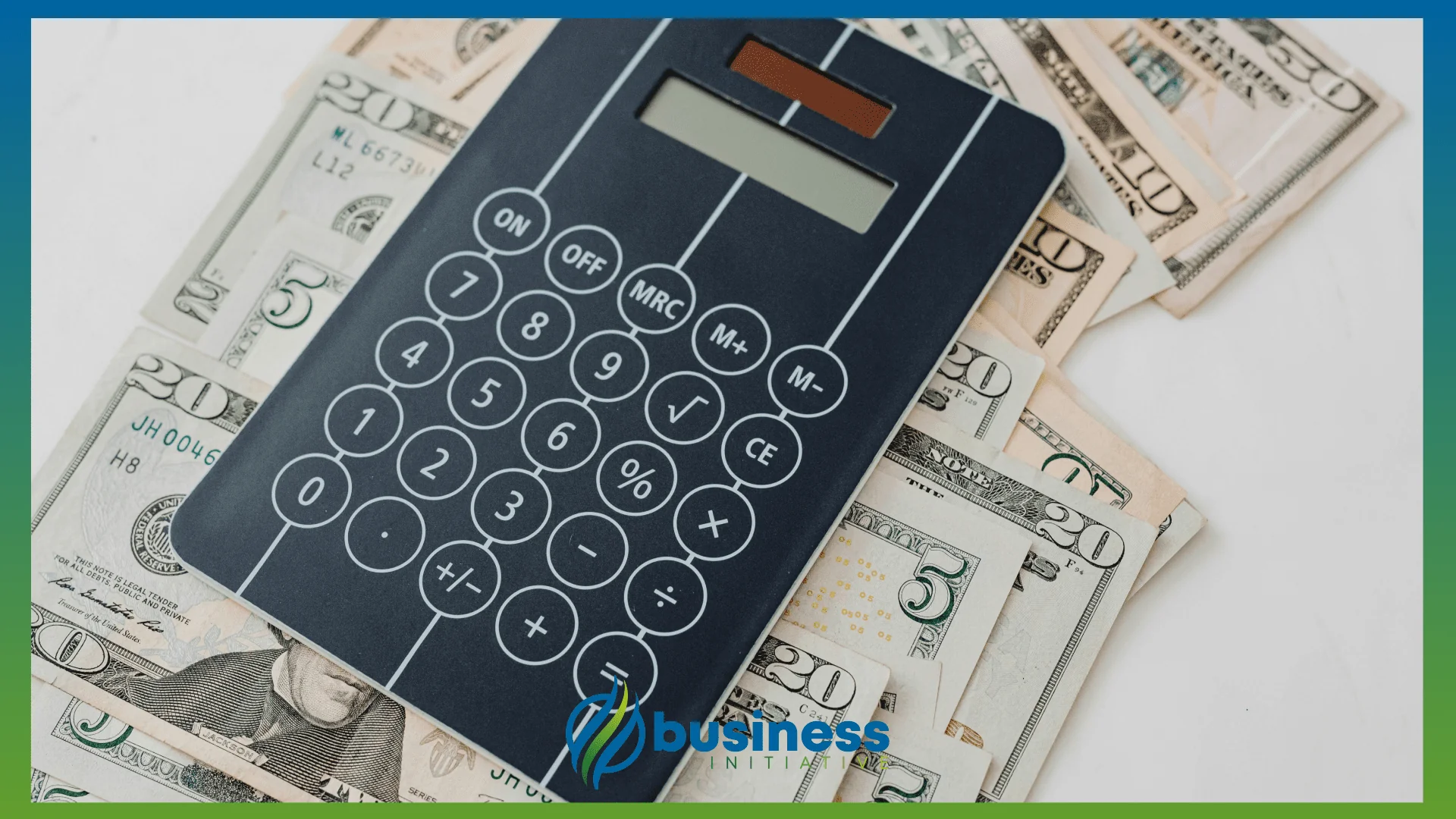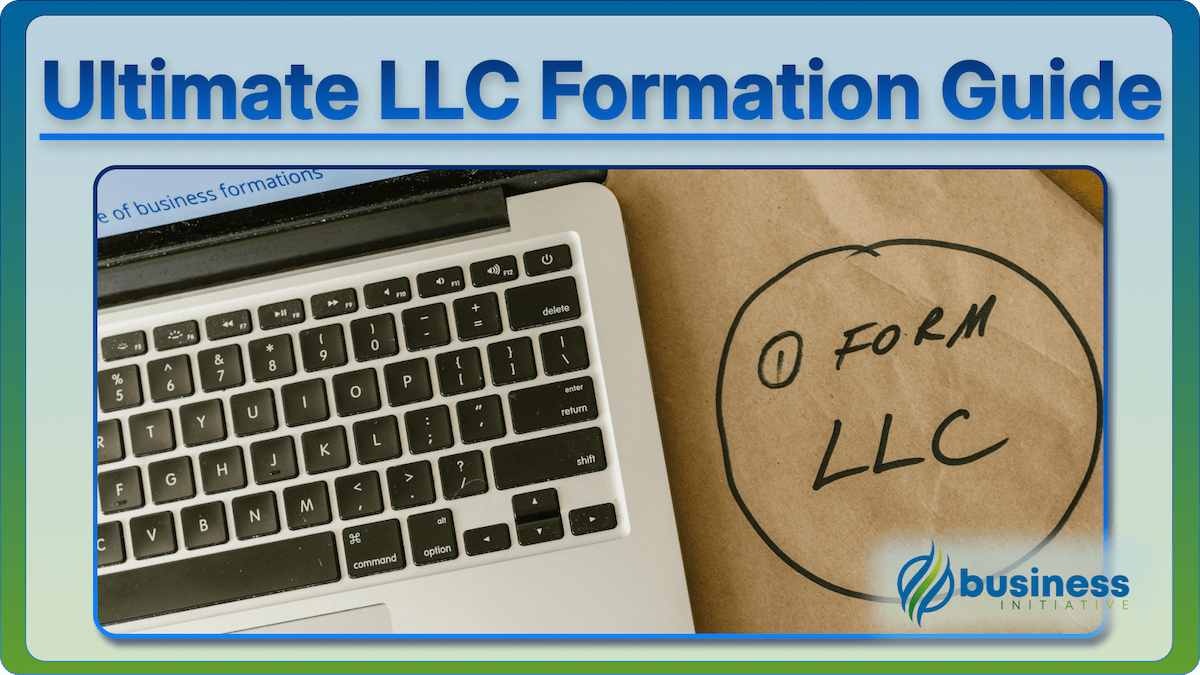You’re planning to start a business, but you don’t know all the costs you’ll face. You’ve thought about the obvious expenses, but hidden costs surprise you later. This underestimation leaves you short on cash when you need it most, which can kill your business before it starts.
A complete startup cost checklist solves this by showing you every expense you’ll encounter in your first year. It organizes costs by business model, so you see what applies to your situation. This comprehensive view prevents surprises and helps you plan for reality, not just optimism.
This guide provides a detailed checklist of common first-year costs with realistic ranges, organized by business model to help you avoid underestimating startup expenses.
We’ll explore costs for different business models, identify hidden expenses, provide realistic cost ranges, and help you build a complete budget. By the end, you’ll understand all the costs you’ll face and how to plan for them.
 Key Takeaways
Key Takeaways
- Identify all costs—use a comprehensive checklist to find every expense you'll face in your first year
- Organize by business model—see which costs apply to your specific type of business
- Account for hidden costs—include overlooked expenses like permits, refunds, and chargebacks
- Use realistic ranges—plan for actual costs, not optimistic estimates
- Build complete budget—create a comprehensive budget that covers all expenses
 Table of Contents
Table of Contents

Why Checklists Matter
Startup cost underestimation kills businesses. You plan for $50,000, but reality costs $75,000. You run out of cash before revenue starts, which forces you to close or take desperate measures. This underestimation is one of the leading causes of startup failure.
Checklists matter because they prevent you from missing costs. When you have a comprehensive list organized by business model, you see every expense that applies to your situation. This visibility helps you plan for reality, not just the obvious costs, which prevents cash shortfalls.
The reality: Most entrepreneurs underestimate startup costs by 30-50%. They think about equipment and rent but forget about permits, insurance, marketing, and working capital. A complete checklist helps you catch these costs before they surprise you.
Service Business Costs
Service businesses have unique cost structures. Understanding these costs helps you plan accurately for consulting, agency, or professional service startups.
Professional Service Costs
What to include:
- Business registration and licenses ($500-$2,000)
- Professional liability insurance ($1,000-$5,000 annually)
- Office space or co-working membership ($3,000-$15,000 annually)
- Technology and software subscriptions ($2,000-$10,000 annually)
- Marketing and client acquisition ($5,000-$20,000 first year)
- Legal and accounting setup ($1,000-$5,000)
- Working capital for 3-6 months of operations ($10,000-$50,000)
Why this matters: Professional service costs are often underestimated because they seem simple. You might think you just need a computer and clients, but insurance, marketing, and working capital add up quickly. Understanding these costs helps you plan for reality.
Agency Costs
What to include:
- Team salaries and benefits ($50,000-$200,000+ annually)
- Office space and equipment ($10,000-$50,000)
- Software and tools for service delivery ($5,000-$25,000 annually)
- Marketing and business development ($10,000-$50,000 first year)
- Client acquisition costs ($5,000-$30,000)
- Working capital for payroll and expenses ($20,000-$100,000)
Why this matters: Agency costs scale with team size, which makes them harder to estimate. If you’re hiring employees, costs multiply quickly. Understanding these costs helps you plan for growth without running out of cash.
Pro tip: Use our Startup Cost Calculator to estimate service business costs. Enter your specific expenses to see total startup costs and recommended cash buffer, which helps you plan for adequate funding.

Product Business Costs
Product businesses have different cost structures than services. Understanding manufacturing, inventory, and fulfillment costs helps you plan accurately.
Manufacturing Costs
What to include:
- Product development and prototyping ($10,000-$100,000+)
- Manufacturing equipment and setup ($20,000-$500,000+)
- Initial inventory and raw materials ($5,000-$100,000+)
- Quality control and testing ($2,000-$20,000)
- Warehousing and storage ($5,000-$50,000 annually)
- Shipping and fulfillment setup ($3,000-$30,000)
- Working capital for inventory and operations ($25,000-$200,000+)
Why this matters: Manufacturing costs are often the biggest startup expenses. Product development, equipment, and inventory require significant capital. Understanding these costs helps you secure adequate funding before starting.
E-commerce Product Costs
What to include:
- Product sourcing and initial inventory ($10,000-$100,000+)
- E-commerce platform and website ($2,000-$15,000)
- Payment processing setup ($500-$2,000)
- Fulfillment and shipping infrastructure ($5,000-$50,000)
- Marketing and customer acquisition ($10,000-$100,000+ first year)
- Returns and chargebacks reserve ($2,000-$20,000)
- Working capital for inventory and cash flow ($20,000-$150,000+)
Why this matters: E-commerce costs include inventory, fulfillment, and marketing, which can be substantial. Returns and chargebacks are often overlooked but can drain cash. Understanding these costs helps you plan for the full expense of online product sales.
Retail Business Costs
Retail businesses require physical locations, inventory, and point-of-sale systems. Understanding these costs helps you plan for brick-and-mortar startups.
Physical Retail Costs
What to include:
- Location lease and deposits ($10,000-$100,000+)
- Store build-out and fixtures ($20,000-$200,000+)
- Initial inventory ($25,000-$500,000+)
- Point-of-sale systems and technology ($3,000-$20,000)
- Signage and branding ($2,000-$15,000)
- Permits and licenses ($1,000-$10,000)
- Marketing and grand opening ($5,000-$50,000)
- Working capital for inventory and operations ($30,000-$200,000+)
Why this matters: Retail costs are among the highest for startups. Location, build-out, and inventory require significant capital. Understanding these costs helps you secure adequate funding and plan for realistic timelines.
Restaurant and Food Service Costs
What to include:
- Location lease and build-out ($50,000-$500,000+)
- Kitchen equipment ($30,000-$300,000+)
- Initial inventory and supplies ($10,000-$50,000)
- Permits and licenses ($5,000-$25,000)
- Point-of-sale and technology ($5,000-$20,000)
- Marketing and opening ($10,000-$50,000)
- Working capital for operations ($25,000-$150,000+)
Why this matters: Restaurant costs are extremely high due to equipment and build-out requirements. Permits and licenses are more complex and expensive than many realize. Understanding these costs helps you plan for the substantial capital requirements.
Pro tip: Research local permit and license costs before finalizing your budget. These costs vary significantly by location and business type, and they’re often higher than expected. This research prevents budget surprises.

Online Business Costs
Online businesses have lower upfront costs but still require significant investment. Understanding technology, marketing, and operational costs helps you plan accurately.
SaaS and Software Costs
What to include:
- Product development ($20,000-$500,000+)
- Hosting and infrastructure ($2,000-$20,000 annually)
- Software licenses and tools ($5,000-$50,000 annually)
- Marketing and customer acquisition ($10,000-$200,000+ first year)
- Legal and compliance ($3,000-$15,000)
- Working capital for operations ($15,000-$100,000+)
Why this matters: SaaS costs are often underestimated because they seem low. Development, marketing, and infrastructure add up quickly, especially for complex products. Understanding these costs helps you plan for adequate funding.
Content and Media Costs
What to include:
- Content creation tools and software ($2,000-$15,000 annually)
- Hosting and platform fees ($1,000-$10,000 annually)
- Marketing and promotion ($5,000-$50,000 first year)
- Equipment for content creation ($3,000-$20,000)
- Legal and licensing ($2,000-$10,000)
- Working capital for operations ($5,000-$50,000)
Why this matters: Content business costs seem low, but tools, marketing, and equipment add up. Many content businesses fail because they don’t budget enough for marketing and promotion. Understanding these costs helps you plan for success.
Common Costs All Businesses
Some costs apply to every business, regardless of model. Understanding these universal costs helps you build a complete budget.
Legal and Registration Costs
What to include:
- Business entity formation ($500-$2,000)
- Business licenses and permits ($200-$5,000)
- Trademark or intellectual property protection ($1,000-$10,000+)
- Legal consultation and document review ($1,000-$10,000)
- Registered agent service ($100-$500 annually)
Why this matters: Legal and registration costs are universal but often underestimated. Formation, licenses, and legal consultation are necessary for all businesses. Understanding these costs helps you budget for proper setup.
Technology and Software Costs
What to include:
- Accounting software ($200-$2,000 annually)
- Business software and tools ($1,000-$10,000 annually)
- Website and domain ($500-$5,000)
- Email and communication tools ($500-$3,000 annually)
- Security and backup systems ($500-$5,000 annually)
Why this matters: Technology costs add up across multiple tools and services. Many businesses underestimate how much they’ll spend on software subscriptions and tools. Understanding these costs helps you plan for ongoing technology expenses.
Marketing and Branding Costs
What to include:
- Brand identity and logo design ($500-$10,000)
- Website design and development ($2,000-$50,000+)
- Marketing campaigns and advertising ($5,000-$100,000+ first year)
- Content creation and materials ($2,000-$20,000)
- Public relations and outreach ($1,000-$25,000)
Why this matters: Marketing costs are universal and often the biggest first-year expense. Many businesses underestimate how much they’ll need to spend to acquire customers. Understanding these costs helps you plan for adequate marketing budgets.
Insurance and Risk Management Costs
What to include:
- General liability insurance ($500-$5,000 annually)
- Professional liability or errors and omissions ($1,000-$10,000 annually)
- Property insurance ($500-$5,000 annually)
- Workers’ compensation (if applicable) ($1,000-$10,000+ annually)
- Business interruption insurance ($500-$3,000 annually)
Why this matters: Insurance costs are necessary but often overlooked in startup budgets. Different business types require different insurance, and costs vary significantly. Understanding these costs helps you plan for proper risk management.
Working Capital and Cash Reserve
What to include:
- 3-6 months of operating expenses ($10,000-$200,000+)
- Cash buffer for unexpected costs (20-30% of total startup costs)
- Reserve for slow sales periods ($5,000-$100,000+)
- Emergency fund for business crises ($5,000-$50,000+)
Why this matters: Working capital is the most overlooked startup cost. You need cash to cover expenses while building revenue, and you need reserves for unexpected costs. Understanding these needs helps you secure adequate funding.
Pro tip: Use our Startup Cost Calculator to build a complete budget. Enter all your costs by category to see total startup expenses and recommended cash buffer, which helps you plan for adequate funding.
Your Next Steps
A complete startup cost checklist prevents surprises. Review costs for your business model, identify all expenses, then build a comprehensive budget that covers everything.
This Week:
- Review the cost checklist for your business model
- Identify all costs that apply to your situation
- Research local costs for permits, licenses, and services
- Use our Startup Cost Calculator to estimate total expenses
This Month:
- Build a detailed budget with all startup costs
- Add realistic cost ranges based on your research
- Include working capital and cash reserves in your budget
- Validate your budget with advisors or experienced entrepreneurs
Going Forward:
- Update your budget as you learn more about actual costs
- Build in contingency for unexpected expenses
- Track actual costs vs. budget to improve future estimates
- Use your budget to secure adequate funding before starting
Need help? Check out our Startup Cost Calculator for comprehensive cost estimation, our startup budget guide for budgeting strategies, and our hidden costs guide for overlooked expenses.
Stay informed about business strategies and tools by following us on X (Twitter) and signing up for The Initiative Newsletter.
FAQs - Frequently Asked Questions About Avoid the Surprise: A Complete Startup Cost Checklist by Business Model

By how much do most entrepreneurs underestimate their startup costs?
Most entrepreneurs underestimate startup costs by 30-50%, typically forgetting expenses like permits, insurance, marketing, and working capital.
Learn More...
They focus on obvious costs like equipment and rent but miss hidden expenses that accumulate quickly during the first year.
A complete checklist organized by business model helps catch these costs before they create cash shortfalls that can kill the business.
What are the typical first-year costs for a service business?
Service businesses typically face $22,500 to $107,000+ in first-year costs including registration, insurance, office space, technology, marketing, legal setup, and working capital.
Learn More...
Professional service costs include business registration ($500-$2,000), professional liability insurance ($1,000-$5,000), office or co-working space ($3,000-$15,000), and marketing ($5,000-$20,000).
Agency models cost significantly more due to team salaries ($50,000-$200,000+), client acquisition costs, and working capital needs for payroll ($20,000-$100,000).
What hidden costs do e-commerce product businesses often overlook?
E-commerce businesses often overlook returns and chargebacks reserves ($2,000-$20,000), fulfillment infrastructure costs ($5,000-$50,000), and the full scale of marketing spend ($10,000-$100,000+).
Learn More...
Beyond inventory sourcing, e-commerce requires payment processing setup, shipping infrastructure, and substantial working capital for inventory and cash flow ($20,000-$150,000+).
Returns and chargebacks are frequently forgotten but can significantly drain cash, making a dedicated reserve essential for financial stability.
How much working capital and cash reserve should a startup plan for?
Plan for 3-6 months of operating expenses, a 20-30% buffer above total startup costs, plus reserves for slow sales periods and emergencies.
Learn More...
Working capital is the most overlooked startup cost—you need cash to cover expenses while building revenue and reserves for unexpected costs.
Specific ranges depend on your business model, but reserves can range from $10,000 to over $200,000 for operating expenses alone, plus separate emergency funds of $5,000-$50,000+.
What universal costs apply to every business regardless of model?
Every business faces legal and registration costs, technology and software expenses, marketing and branding costs, insurance, and working capital needs.
Learn More...
Legal costs include entity formation ($500-$2,000), licenses and permits ($200-$5,000), trademark protection ($1,000-$10,000+), and registered agent service ($100-$500 annually).
Technology costs add up across accounting software, business tools, website, email, and security systems, typically totaling $2,700-$25,000 annually.
Why are restaurant startup costs among the highest of any business type?
Restaurants require expensive build-outs ($50,000-$500,000+), kitchen equipment ($30,000-$300,000+), complex permits ($5,000-$25,000), and significant working capital ($25,000-$150,000+).
Learn More...
The combination of location build-out, specialized equipment, and extensive permit requirements makes restaurants one of the most capital-intensive startup types.
Permits and licenses are more complex and expensive than many realize, varying significantly by location, and initial inventory and supplies alone can run $10,000-$50,000.
Sources & Additional Information
This guide provides general information about startup cost checklists. Your specific situation may require different considerations.
For startup cost calculation, see our Startup Cost Calculator.
Consult with professionals for advice specific to your situation.


